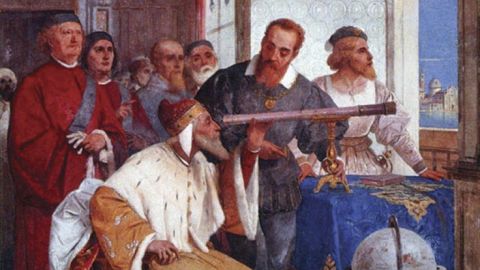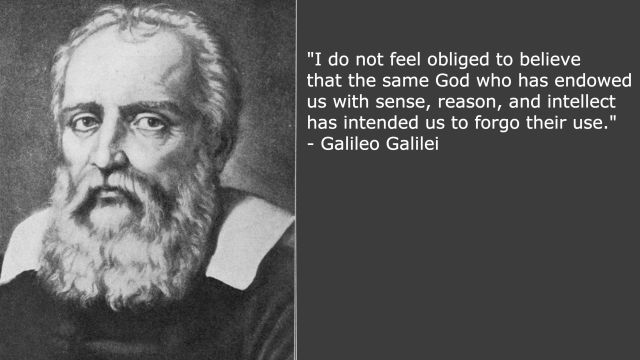Lessons in Abstraction from Galileo

Today is the birthday of Galileo Galilei. So what exactly is the legacy of the great Italian physicist and astronomer and what can we learn from him?
We think of Galileo as a brave thinker, a science evangelist who took up the cause of convincing the Catholic Church that the earth went round the sun and not the other way around. History has vindicated Galileo, but in a broader sense, we can think of Galileo’s contribution this way: he introduced abstract thinking into science.
One could not observe the motion of the earth round the sun. So Galileo needed a different method of acquiring knowledge, and his way of thinking was a much more revolutionary instrument for science than even the telescope. In the words of the Encyclopedia Britannica, the modern idea of experiment was a method that was a peculiarly Galilean one that “consisted in the combination of experiment with calculation–in the transformation of the concrete into the abstract and the assiduous comparison of results.”
“The laws of Nature are written in the language of mathematics,” Galileo famously said. In other words, math is not only to be considered a tool. It is a mode of operation for discovering new truths: the mathematical deductive method. While Bertolt Brecht’s play Galileo uses poetic license to dramatize Galileo’s life, Brecht’s friend and translator Eric Bentley nailed this concept in his introduction to the English edition of the play:
What actually happened to physics in the seventeenth century is that it became mathematical. This meant that it became, not more concrete, but just the opposite. After all, the evidence of one’s senses is that the sun goes round the earth. That the earth should go round the sun is completely counter to that evidence. The average man today accepts the latter idea on pure faith. So far as he knows, it could be wholly untrue. For the demonstration lies in the realm of the abstract and the abstruce.
In other words, our eyes can only perceive so much. Our brains are wired to only conceive so much. Math, however, gives us an extra sense. And there are truths that can only be accessed through mathematics. This idea is taken up and greatly expanded upon by mathematician Edward Frenkel in today’s lesson.
Read more here.





